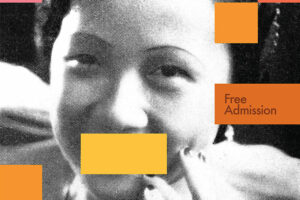AFTER a two-year hiatus, the International Silent Film Festival (ISFF) in Manila will once again be bringing together cultural institutions, musicians, and film lovers in a celebration of cinema, music, and international collaboration.
Scheduled for July 11 to 13 at the Shangri-La Plaza in Ortigas, Mandaluyong City, the festival will showcase five films from Spain, Italy, Japan, Austria, and Germany. They have each been paired with five sets of Philippine musicians who will perform live scoring at the screenings.
This year’s edition has the exclamation point as its central symbol.
“In the spirit of silent film, where expression is everything and every gesture is heightened, the exclamation point becomes a fitting emblem for a festival that seeks to amplify its voice in silence,” said the festival’s film programmer, Eunice Helera, at the June 17 press conference.
“It signals a bold return, a shared declaration: we’re back,” she added.
UNIQUE COLLABORATIONSFor the Spanish-language film this year, Instituto Cervantes selected Gigantes y Cabezudos (1936), which follows a young man returning from a war tour in the Philippines to meet his lover in Spain.
Its festive atmosphere, since it centers on the lovers at a folk parade, will be given a contemporary twist thanks to the scoring by jazz-hip hop-electronic-pop band Psychic Surgeons, delivering something “cinematically Spanish but musically Filipino,” according to Instituto Cervantes de Manila Director Francisco Javier López Tapia.
For Psychic Surgeons band member Gabriel Lazaro, the band’s style is “perfect for the film.”
“It’s visually stunning and very surreal, which is something we’re personally attracted to,” he told BusinessWorld.
Fra Diavolo (1925) is the selection provided by the Philippine Italian Association, specifically chosen by their musician collaborator, Pepe Manikan. He and his Progharmonic Orchestra also provided live music at the last ISFF in 2022.
“I chose the film because it’s fun and has a lot of action and adventure. We’ll also be doing live foley sound effects,” Mr. Manikan said. “The film is actually about trying to stop an invasion, which is a theme that’s very relevant now, that fight for sovereignty.”
He added that people can expect a “fusion of genres,” from jazz and progressive rock to more traditional film score elements.
Meanwhile, the Goethe-Institut Philippinen is bringing in Wie sich das Kino rächt (1912), a comedy about a film censor being pranked by various filmmakers. The live scorers for it will be experimental duo Ma.Ma, made up of sound artists Alyana Cabral and Joee Mejias.
INCLUSIVE SELECTIONSJapan Foundation Manila’s film this year is The Scent of Pheasant’s Eye (1935), about a high school girl who falls in love with her sister-in-law. It is adapted from Nobuko Yoshiya’s stories about romantic female friendships titled Tales of Flowers, published from 1916 to 1924, a pioneer of lesbian sexuality in Japanese literature.
“We found this film at the National Film Archive of Japan. A person told me about this and its relation to queer cinema, and I enjoyed finding out about its history and wanted to share it with more people,” said Eisuke Matsuda, assistant director of the Japan Foundation.
In line with the film’s themes, they invited three female Filipino musicians — Teresa Barrozo, Pat Sarabia, and Mariah Reodica — to do the live scoring for the film. They will also be joined by a female benshi, or Japanese silent film narrator, Nanako Yamaguchi, providing a rare cultural experience.
Finally, The Life of Beethoven (1927) is the selection from the Austrian Embassy. The biopic on Ludwig van Beethoven will be live scored by an orchestra assembled by Hearlife Verein, a non-profit foundation for deaf children in the Philippines.
Nina “Tosh” Jacob-Soliven, Hearlife’s program director, said that Mariel Ilusorio will lead the musicians, including a string quartet, teenage sopranos from the Association of Royal Schools of Music in the UK, and a partially deaf pianist who has a cochlear implant.
“Our NGO (non-governmental organization) works with deaf children, and we all know Beethoven himself became deaf. We have a deaf musician, and we’ll have a sign language translator for the deaf community we invited to come,” she said. “It’s a silent film, so it will be more inclusive in all aspects.”
The festival runs from July 11 to 13 at Shangri-La Plaza, with a pocket screening taking place on July 14 at Cine Adarna, UP Film Center, in Quezon City. Admission is free. — Brontë H. Lacsamana
